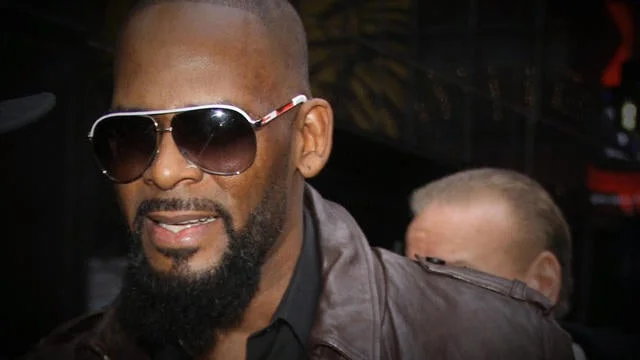The headlines are practically writing themselves. "Norovirus Outbreak on Cr...
2025-10-01 13 royal caribbean norovirus outbreak
You’ve probably seen the headlines, and they’re not pretty. “Norovirus outbreak on Royal Caribbean cruise sickens nearly 100 people.” You can almost smell the antiseptic wipes and feel the gentle, queasy sway of the ship. On the Serenade of the Seas, a two-week dream voyage from San Diego to Miami turned into a miserable crawl for 71 passengers and one crew member, all struck down by a nasty gastrointestinal bug. The ship became a floating infirmary, a case study in containment, with the CDC’s Vessel Sanitation Program monitoring every disinfected handrail and quarantined cabin from afar.
It’s a grim picture. And if you stop there, you’re missing the most important story of the 21st century.
Because while the news focused on the human misery, I found myself utterly captivated by the system humming silently beneath it. The reporting protocols, the case definitions—did you know an outbreak is officially triggered when 3% of the population reports symptoms?—the coordinated response between a private company and a federal agency. This wasn't just a cleanup operation. It was a test run of a planetary immune system, a localized antibody response made of data, protocols, and communication.
This is the kind of breakthrough that reminds me why I got into this field in the first place. We see a stomach bug; the universe sees a pattern. We see a crisis; the future sees a data point in a system learning to defend itself.
The Ghost in Two Machines
Now, stay with me. Around the same time I was reading about the Serenade of the Seas, I was digging through another document, one so mind-numbingly boring it would make a lawyer yawn: an NBCUniversal Cookie Notice. You’ve seen them a thousand times. Walls of text about “first-party cookies,” “third-party cookies,” “cross-device tracking,” and “interest-based advertising.” It’s the digital equivalent of fine print, the stuff we click “accept” on without a second thought.
But when you place these two stories side-by-side—the sick cruise ship and the dry legal notice—something absolutely electric happens. You realize you’re looking at two sides of the same revolutionary coin.
Both are systems designed to track, identify, and respond to entities moving through a complex environment. The CDC’s program tracks a biological virus to protect a population’s physical health. The cookie policy outlines a system that tracks a digital you—your identity, your preferences, your habits—to create a personalized, responsive digital world. This uses a web of trackers and identifiers—in simpler terms, it means your phone, your laptop, and your smart TV are all talking to each other about what you like so they can show you more of it. One system is fighting a contagion we can see under a microscope. The other is managing a contagion of information, for better or worse.

What we’re witnessing here isn’t just a parallel. It’s a convergence. This is the technological equivalent of the printing press meeting the steam engine—two independent, powerful ideas colliding to create a future we can barely imagine. We are building a global nervous system out of these disparate parts, and we don’t even realize it.
Imagine a world where the same kind of passive, persistent tracking that currently serves you a shoe ad could identify the faint biometric signals of an impending viral outbreak before the first person even feels a symptom. The speed of this is just staggering—it means the gap between a pathogen emerging and our ability to respond could shrink from weeks to minutes, saving millions of lives. Think of it. Your smartwatch detects a fractional rise in your resting heart rate. The smart thermometer in the pharmacy you just visited notes a localized spike in fever medication sales. Your phone’s location data sees that you, and a dozen other people with similar biometric flags, all ate at the same restaurant.
Before a single person is officially diagnosed, the system knows. It dispatches health alerts, reroutes public transport, and informs clinics. This isn’t science fiction. We are building the sensors and the networks right now. We’re just using them to sell sneakers and contain cruise ship illnesses. We’re using revolutionary tools for mundane tasks, like a caveman using a laser pointer to chase a bug on the wall.
Of course, the moment you talk about this, you have to talk about the ethics. A system that can predict a plague can also predict dissent. It can be used for control just as easily as it can be used for care. Building this future requires a new social contract, one built on radical transparency and individual ownership of data. The power must belong to the people, not the platform. But to dismiss the entire future because of its risks is like refusing to discover fire for fear of getting burned.
I’m not the only one who sees this emerging pattern. I was scrolling through a forum the other day, and the conversation wasn’t about the misery of the outbreak, but the beauty of the system.
One user, `@NeuraLace_Dreamer`, put it perfectly: “People are focused on the sickness, but Dr. Thorne is right. The system that detects and contains it is the real story. It's a prototype for a smarter planet.”
Another, `@Data_Is_Beautiful`, added: “The analogy to a planetary immune system is perfect. We're building the antibodies out of pure information.”
This is the pulse. This is the shared, dawning realization that we are on the cusp of something profound. So yes, dozens of people got sick on a cruise ship. It’s unfortunate. But the real story, the one that should be on every front page, is that a system of information worked flawlessly to track, contain, and learn from it. It’s a single neuron firing in what will one day be a thinking, feeling, self-healing world.
What we call "privacy policies" and "public health protocols" today are the fossil records of our civilization's first attempt to build a nervous system. They are the clumsy, disconnected beginnings of a sentient network that will one day monitor the health of our cities, our oceans, and our bodies with the same effortless grace that you monitor your own breathing. We are not just building tools; we are evolving a new kind of planetary consciousness. And it’s happening right now, in the most boring documents and the most unfortunate news stories you can find.
Reference article source:
Tags: royal caribbean norovirus outbreak
Related Articles

The headlines are practically writing themselves. "Norovirus Outbreak on Cr...
2025-10-01 13 royal caribbean norovirus outbreak